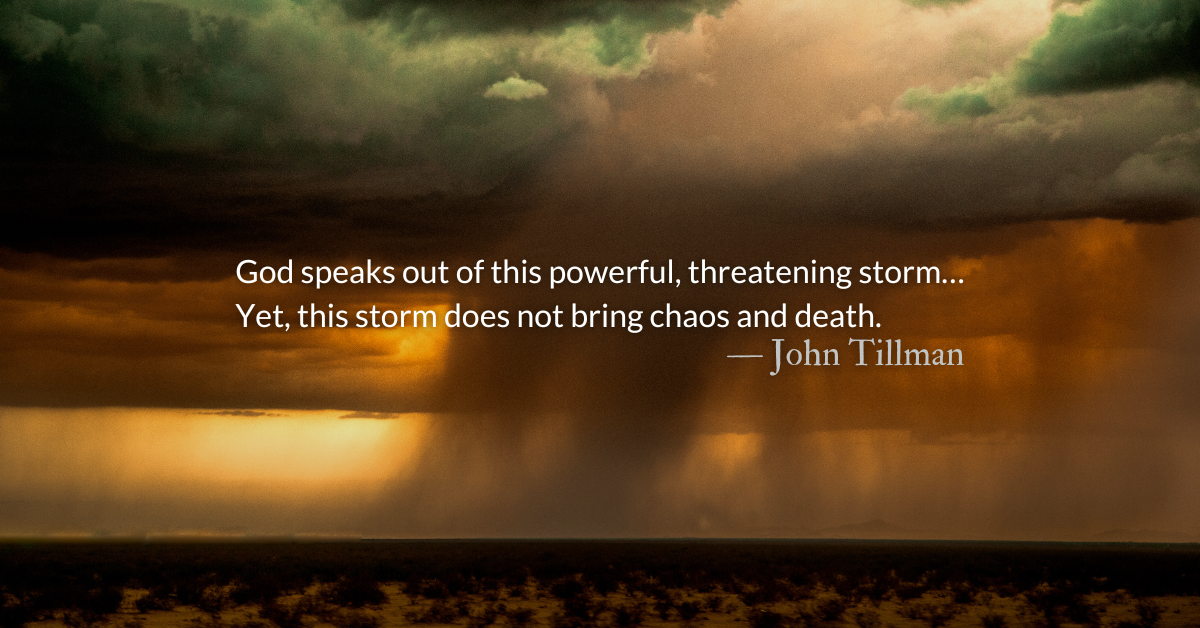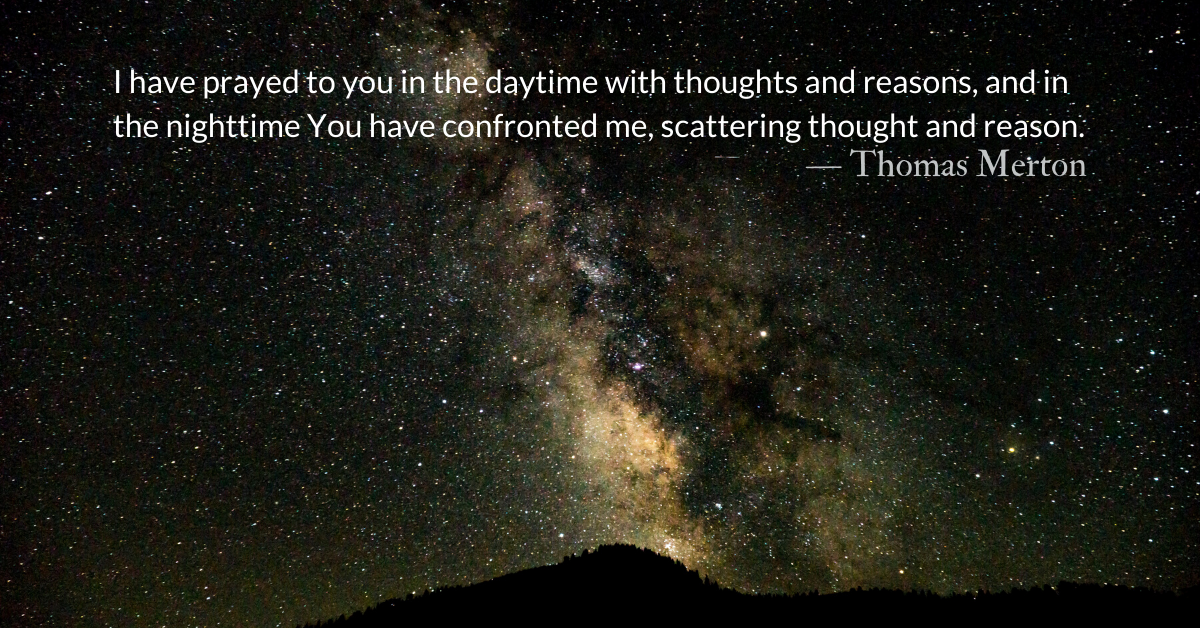Scripture Focus: Job 38.1a
1 Then the Lord spoke to Job out of the storm…
Reflection: Two Storms
By John Tillman
There are two storms in the Book of Job. At the beginning is a storm sent by Satan. At the end is a storm bringing God’s presence.
Satan’s storm brings death. A wind blows in from the desert, destroying a house with Job’s children inside. News of this storm comes to Job alongside news of disasters that hit like hailstones. A storm of fire rains down, burning up sheep and shepherds. Raiders steal oxen, camels, and donkeys and murder their caretakers. Satan’s storm crushes joy and celebration. It destroys resources. It leaves Job sobbing in a circle of the storm’s sole survivors.
Satan isn’t satisfied with the external storm’s lack of success. Storms of sickness follow, attacking Job’s skin, bones, inner being, and mind. He scrapes his itching sores with broken pottery. In his mind, thoughts of suicide, death, and annihilation scratch their way to the surface.
As Elihu speaks in chapter 37, he repeatedly references a storm. They must have been able to see it blowing in. “Listen! Listen…” Elihu cries. (Job 37.2-4) In chapter 38, the storm breaks over them.
This storm is no airy, dry wind from the desert. It is far greater and more terrifying. It has lightning, thunder, billowing clouds, and downpours of rain and snow. But this storm is not just sent by God or made by God. God is in this storm. God’s power flashes in its lighting. His roaring voice echoes in its thunder. His hovering Spirit stirs up its billowing clouds of darkness that blot out the sun.
God speaks out of this powerful, threatening storm. His words are harsh lighting flashes of truth. His emotions rumble like rolling thunder. His arguments are unanswerable. There is no defense against the flood of them. All Job’s words, doubts, and challenges are washed into the sea. Yet, this storm does not bring chaos and death.
God’s storm brings life. Job’s illness washes away with the flood. The sky clears, and God makes Job his priest, interceding and accepting offerings for the sins of his friends. The sun warms Job as friends bring him comfort. Job is, once again, God’s righteous representative, restored to honor, wisdom, and wealth.
God is not in every storm. Some storms just bring death. Wait and pray for the second storm—the storm that brings God’s presence. God’s storm restores health and faith, brings growth and joy, and rains blessings and comfort.
Divine Hours Prayer: The Small Verse
Show us your mercy O Lord; and grant us your salvation.
Clothe your ministers with righteousness; let your people sing with joy.
Give peace, O Lord, in all the world; for only in you can we live in saftey.
– From The Divine Hours: Prayers for Summertime by Phyllis Tickle.
Today’s Readings
Job 38 (Listen 3:33)
Psalm 23-24 (Listen 2:03)
Read more
Read more about Prayers Before the Storm — Guided Prayer
It seems to me that Elihu must have been aware of the storm of God’s presence…I imagine the winds lifting his words as he spoke of God’s majesty
Read more about Supporting Our Work
We need support from donors like you to provide ad-free content that brings biblical devotionals to inboxes across the world.








